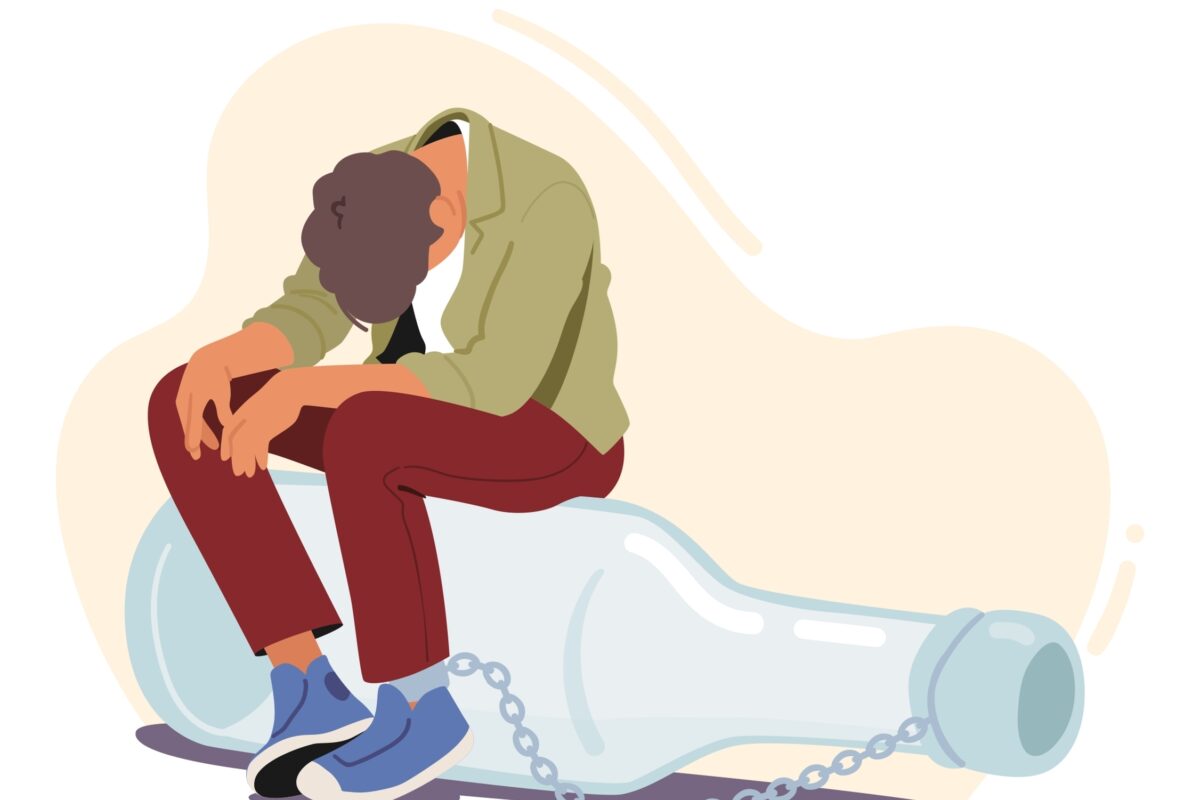Sober living is a transitional living arrangement designed to provide a safe and supportive environment for individuals recovering from addiction. It serves as a stepping stone between an inpatient treatment program and fully independent living. Sober living homes in New Jersey, particularly in Bergen County, offer a structured and drug-free environment where individuals can focus on their recovery journey.
Living in a sober home provides a range of benefits for those in recovery. Firstly, it offers a sense of community and support. Residents in sober living homes often share similar experiences and can lean on each other for support, encouragement, and accountability. This community aspect is vital in maintaining sobriety and preventing relapse.
Secondly, sober living homes provide a structured environment that helps individuals establish a routine and develop life skills. Residents are expected to adhere to house rules and guidelines, such as attending support group meetings, participating in household chores, and maintaining sobriety. These responsibilities help individuals learn accountability, time management, and interpersonal skills, which are crucial for a successful recovery.
Lastly, sober living homes offer a drug and alcohol-free living environment. This is particularly important during the early stages of recovery when individuals are most vulnerable to relapse. By removing triggers and temptations associated with substance use, sober living homes provide a safe space for individuals to focus on their recovery and build a solid foundation for a sober lifestyle.
Benefits of Sober Living in Bergen County, New Jersey
Choosing sober living in Bergen County, New Jersey comes with a multitude of advantages. Firstly, Bergen County is known for its strong recovery community and extensive support network. There are numerous addiction treatment centers, support groups, and resources available to individuals seeking help for their addiction. This creates a supportive environment where individuals in recovery can easily access the necessary services and connect with others who understand their journey.
Additionally, Bergen County offers a variety of recreational activities and natural landscapes. Engaging in outdoor activities, such as hiking or exploring the beautiful parks in the area, can be incredibly therapeutic and beneficial for individuals in recovery. These activities provide a healthy outlet for stress and help individuals reconnect with nature, which has been shown to boost overall well-being and support recovery.
xBergen County is conveniently located near major cities like New York City. This proximity provides access to a wide range of employment opportunities, educational institutions, and cultural experiences. Having access to these resources can greatly support individuals in their transition to independent and fulfilling lives in recovery.
Sober Living Statistics in New Jersey
Statistics regarding the effectiveness of sober living homes in New Jersey show promising results. According to a study conducted by the New Jersey Department of Human Services, individuals who participated in a sober living program had a significantly higher rate of sustained abstinence compared to those who did not. The study also found that individuals who completed a sober living program had a lower rate of relapse and were more likely to maintain employment and stable housing.
These statistics highlight the positive impact that sober living homes can have on an individual’s recovery journey. By providing a supportive and structured environment, sober living homes in New Jersey contribute to long-term sobriety and improved overall well-being.
Finding the Right Sober Living Home in Bergen County, New Jersey
Finding the right sober living home in Bergen County, New Jersey is essential for a successful recovery journey. Here are some key factors to consider when searching for a sober living home:
- Certification and accreditation: Ensure that the sober living home is certified and accredited by reputable organizations. This ensures that the facility meets certain standards and provides quality care.
- Location: Consider the location of the sober living home. Ideally, it should be in close proximity to support groups, employment opportunities, and other necessary resources.
- Structure and support: Look for a sober living home that offers a structured environment and provides support services. This may include access to counseling, relapse prevention programs, and life skills training.
- Cost and affordability: Determine the cost of the sober living program and whether it is affordable for your budget. Some programs may offer financial assistance or accept insurance.
- Community and peer support: Assess the community and peer support within the sober living home. It is important to choose a home where you feel comfortable and supported by fellow residents.
By considering these factors, you can find a sober living home in Bergen County, New Jersey that suits your specific needs and sets you up for a successful recovery journey.
Creating a Successful Sober Living Plan
Creating a successful sober living plan is crucial for maintaining sobriety and achieving long-term recovery. Here are some steps to help you establish a solid plan:
- Set clear goals: Define your goals for sobriety and articulate what you hope to achieve during your time in sober living. This may include improving relationships, finding stable employment, or furthering your education.
- Develop a routine: Establish a daily routine that includes healthy habits and activities that support your recovery. This may include attending support group meetings, engaging in physical exercise, practicing mindfulness, and pursuing hobbies or interests.
- Build a support network: Surround yourself with individuals who support your sobriety and can provide guidance and encouragement. This may include fellow residents in the sober living home, sponsors, therapists, or support group members.
- Engage in therapy or counseling: Participate in individual or group therapy sessions to address underlying issues related to your addiction and develop coping mechanisms for dealing with triggers and cravings.
- Practice self-care: Prioritize self-care activities that promote physical, emotional, and mental well-being. This may include getting enough sleep, eating a balanced diet, practicing relaxation techniques, and engaging in activities that bring you joy.
By creating a comprehensive sober living plan, you can maximize the benefits of sober living and set yourself up for a successful recovery journey in New Jersey.
Tips for a Successful Sober Living Experience in New Jersey
While in a sober living home in New Jersey, there are several tips you can follow to enhance your experience and increase your chances of maintaining sobriety:
- Embrace the community: Engage with your fellow residents and actively participate in community activities. Building connections and friendships within the sober living home can provide invaluable support and encouragement.
- Attend support group meetings: Regularly attend support group meetings, such as Alcoholics Anonymous (AA) or Narcotics Anonymous (NA), to connect with others who have similar experiences and gain additional support in your recovery journey.
- Take advantage of resources: Utilize the resources available in Bergen County, such as counseling services, vocational training programs, and educational opportunities. These resources can help you build a solid foundation for a successful and fulfilling life in recovery.
- Find healthy outlets for stress: Develop healthy coping mechanisms to deal with stress and avoid turning to substances. Engaging in activities such as exercise, art, or journaling can serve as healthy outlets and help you manage stress in a positive way.
- Practice self-reflection: Take time to reflect on your progress, challenges, and goals. Regular self-reflection can help you stay focused on your recovery and identify areas for personal growth.
By following these tips, you can make the most of your sober living experience in New Jersey and increase your chances of long-term sobriety.
Exploring the Advantages of Sober Living Homes in New Jersey
Sober living homes in New Jersey offer several advantages that contribute to a successful recovery journey. Here are some key advantages to consider:
- Supportive community: Sober living homes provide a supportive community of individuals who understand the challenges of addiction and recovery. This community aspect fosters a sense of belonging and reduces feelings of isolation.
- Structured environment: Sober living homes offer a structured living environment that helps individuals establish routines, develop healthy habits, and learn life skills. This structure provides a solid foundation for maintaining sobriety and transitioning to independent living.
- Accountability and supervision: Sober living homes typically have rules and guidelines that residents must follow, including regular drug testing. This level of accountability and supervision ensures that individuals remain committed to their recovery and are less likely to relapse.
- Access to resources: Sober living homes often have connections to resources such as counseling services, employment opportunities, educational programs, and support groups. These resources support individuals in their recovery and provide tools for long-term success.
- Safe and drug-free environment: Sober living homes offer a safe and drug-free living environment, free from triggers and temptations associated with substance use. This environment promotes healing and allows individuals to focus on their recovery without distractions.
By exploring the advantages of sober living homes in New Jersey, individuals can make an informed decision about their recovery journey and choose a path that best supports their needs.
Sober Living Resources in Bergen County, New Jersey
Bergen County, New Jersey offers a wide range of resources for individuals seeking sober living support. Here are some key resources to consider:
- Treatment centers: Bergen County is home to numerous addiction treatment centers that provide comprehensive care for individuals seeking recovery. These treatment centers offer various programs, including inpatient treatment, outpatient treatment, and sober living options.
- Support groups: There are several support groups available in Bergen County, such as Alcoholics Anonymous (AA), Narcotics Anonymous (NA), and SMART Recovery. These groups provide a supportive and understanding community for individuals in recovery.
- Counseling services: Many counseling services in Bergen County specialize in addiction recovery and can provide individual therapy, group therapy, and family therapy. These services address the underlying issues related to addiction and provide guidance for maintaining sobriety.
- Employment assistance: Some organizations in Bergen County offer employment assistance for individuals in recovery. These programs can help individuals find job opportunities, develop job skills, and navigate the workplace while maintaining sobriety.
- Educational programs: Bergen County provides educational opportunities for individuals seeking to further their education or gain new skills. These programs can help individuals build a brighter future and increase their chances of long-term success in recovery.
By utilizing these resources, individuals in Bergen County can access the support and tools necessary for a successful recovery journey.
Sober Living Services in New Jersey
In addition to the resources available in Bergen County, New Jersey offers various sober living services throughout the state. These services aim to support individuals in their recovery and provide a safe and structured environment. Some of the sober living services available in New Jersey include:
- Sober living homes: There are numerous sober living homes throughout New Jersey, providing individuals with a safe and supportive environment as they transition to independent living. These homes offer structured living arrangements and access to support services.
- Case management: Some sober living programs in New Jersey provide case management services to assist individuals in their recovery journey. Case managers can help individuals navigate resources, develop a personalized recovery plan, and provide ongoing support and guidance.
- Relapse prevention programs: Many sober living programs in New Jersey offer relapse prevention programs to educate individuals on the warning signs of relapse and teach coping strategies for maintaining sobriety. These programs focus on building resilience and providing the necessary tools for long-term recovery.
- Aftercare support: Sober living services in New Jersey often include aftercare support to ensure individuals have continued support once they complete the program. Aftercare may include access to support groups, counseling services, and ongoing case management.
- Family involvement: Some sober living programs in New Jersey involve family members in the recovery process. Family therapy sessions and education can help repair relationships, rebuild trust, and create a supportive network for long-term recovery.
By utilizing these sober living services in New Jersey, individuals can enhance their recovery journey and increase their chances of long-term sobriety.
Conclusion
Sober living in Bergen County, New Jersey offers numerous advantages for individuals seeking a fresh start in their recovery journey. By providing a supportive community, structured environment, and access to resources, sober living homes in New Jersey contribute to long-term sobriety and improved well-being. By following the tips for a successful sober living experience and utilizing the available resources, individuals can create a solid foundation for a fulfilling and sober lifestyle. If you or a loved one is considering sober living in New Jersey, take the first step towards a fresh start and explore the advantages that sober living in Bergen County has to offer.
If you or someone you know is struggling with addiction and considering sober living in Bergen County, New Jersey, reach out to local treatment centers and sober living homes for more information on the available resources and support. Your fresh start and lasting recovery are within reach.




